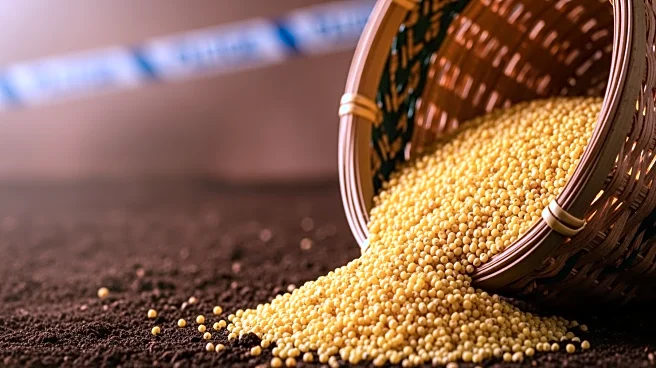What's Happening?
The Food and Agriculture Organisation of the United Nations (FAO) has reiterated its dedication to promoting gender equity and enhancing women's participation in agrifood systems across Africa. During a regional workshop in Accra, FAO officials highlighted
the necessity of gender equity for achieving efficient, inclusive, resilient, and sustainable agrifood systems. The event gathered decision-makers, technical experts, civil society, farmers' organizations, and development partners from Ghana, Liberia, and Sierra Leone to advance policies guided by the Committee on World Food Security's Voluntary Guidelines on Gender Equality and Women's Empowerment. Dr. Abebe Haile Gabriel, FAO's Assistant Director General and Regional Representative for Africa, emphasized the integral role women play in food systems globally, despite facing significant barriers such as limited access to land, finance, and technology. These obstacles contribute to a productivity gap with measurable consequences for national development and household food security.
Why It's Important?
The empowerment of women in agriculture is crucial for closing the existing productivity gap, which could significantly boost national GDPs and reduce food insecurity. According to FAO research, equal access to productive resources for women farmers could close the current 24 percent productivity gap. This would not only enhance economic growth but also improve household welfare and drive national development. The FAO's initiatives, such as the Accelerator Mentorship Programme for Women Led SMEs, aim to provide mentorship and support for women in agriculture, promoting gender-responsive disaster risk reduction strategies. These efforts are vital for addressing systemic inequalities that limit women's contributions to the agricultural sector, ultimately supporting the achievement of Sustainable Development Goals (SDGs).
What's Next?
The workshop in Accra serves as a platform for integrating the Voluntary Guidelines into national and regional policies, offering a roadmap for redesigning agrifood institutions and programs to better address the needs of women and girls. Participants are encouraged to implement gender transformative approaches in their respective contexts, with a focus on removing barriers that prevent women from realizing their full potential in agrifood systems. The FAO continues to support governments in strengthening inclusive policies and generating gender-disaggregated data for better decision-making. The ongoing collaboration with the Africa Risk Capacity Group aims to design risk strategies that consider the unique vulnerabilities of women facing climate-related shocks.
Beyond the Headlines
The empowerment of women in agriculture not only addresses equity issues but also represents an economic imperative capable of transforming household welfare and driving national development. Women constitute nearly half of the agricultural labor force across Africa, playing essential roles in production, processing, trading, and household food security. However, persistent inequalities in access to markets, extension services, and leadership opportunities continue to weaken their contributions. Addressing these gaps requires intentional policy action and coordinated regional efforts, emphasizing the importance of gender-responsive agricultural policies and substantial resources dedicated to empowering women farmers.














